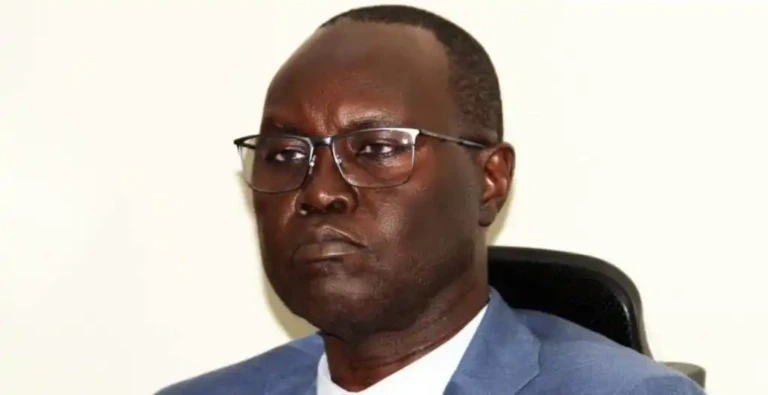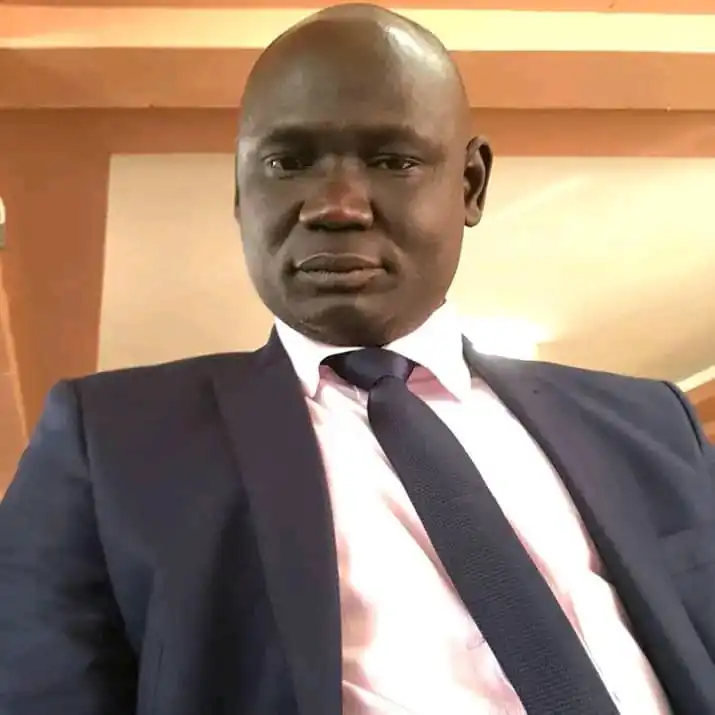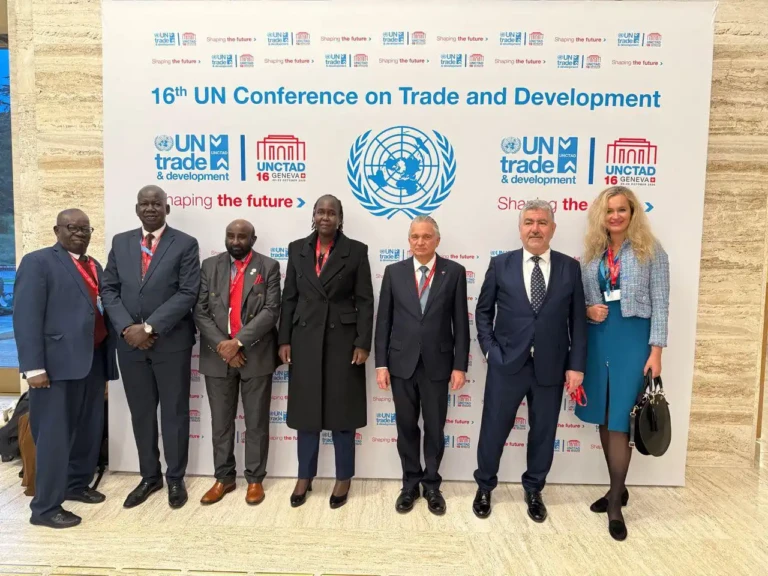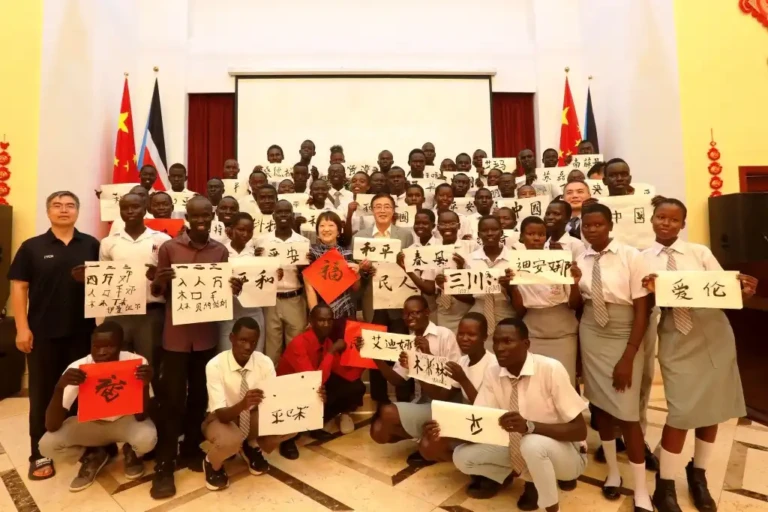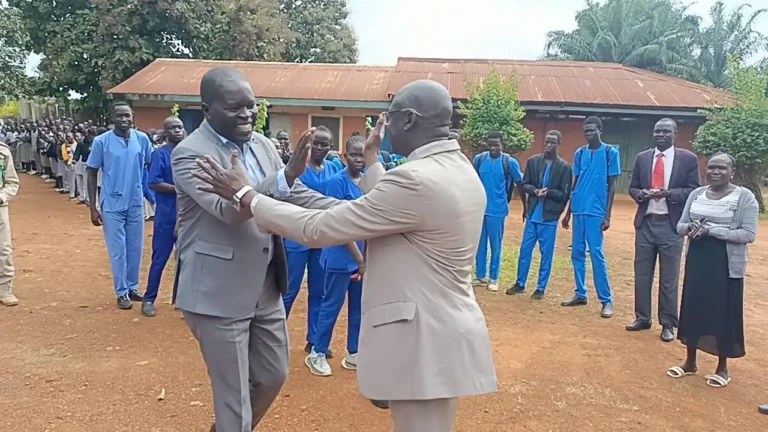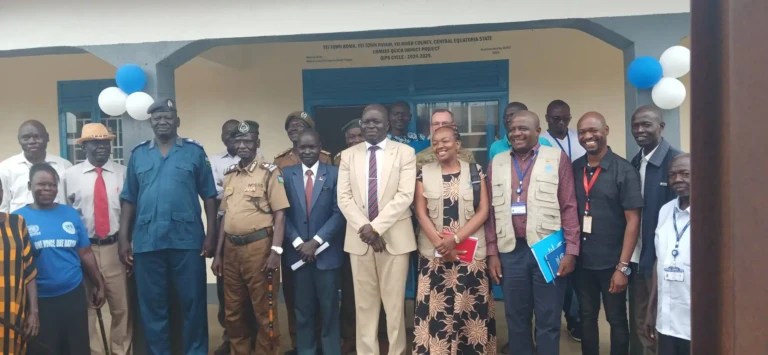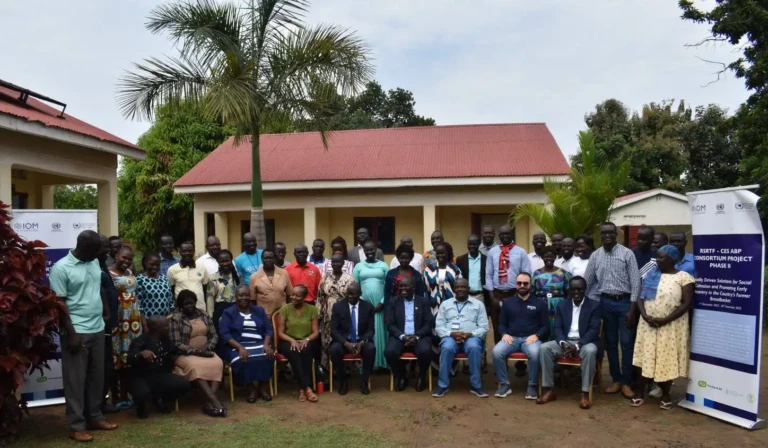
(JUBA) – The South Sudan Revenue Authority (SSRA) has announced that it collected 112 billion South Sudanese Pounds (SSP), equivalent to approximately 24.3 million US Dollars, during the first half of July 2025.
This performance exceeded its bi-weekly target of 100 billion SSP (about 21.7 million USD), marking a notable achievement in South Sudan’s domestic revenue mobilisation efforts.
Commissioner General of the SSRA, Simon Akuei, said the strong performance was due to a combination of internal reforms, increased staff commitment and a clear revenue strategy.
Speaking to journalists in Juba on Tuesday morning, he noted that the SSRA had seen steady growth in its tax collection figures since the start of the year.
“If staff are motivated, if staff have the zeal to help their country, they can collect what is required,” Akuei stated. “The target we set was 100 billion SSP every 15 days. This month, we managed to collect 112 billion in the first half of July, surpassing our target.”
While acknowledging the success, Akuei stressed that this milestone was only the beginning of a broader campaign aimed at building a more sustainable and efficient tax system in South Sudan. He revealed plans to establish a new Revenue Training Institute, which will provide capacity building for SSRA employees, civil servants, and even members of the public.
“We want to increase our collections, and that increase means launching this institute here to train staff, members of the Revenue Authority, and even the public,” Akuei said.
He also confirmed that the SSRA is preparing to introduce a Tax Procedure Act. The legislation aims to clearly define the roles and responsibilities of national, state, and local governments in tax collection. One of the primary goals of the bill is to eliminate double taxation, a persistent concern raised by South Sudanese businesses operating across different administrative levels.
“The bill will help prevent businesses from being taxed multiple times and reduce conflicts between different tax-collecting bodies,” said Akuei, adding that clear legal guidance would promote fairness and improve business confidence.
Currently, the SSRA is responsible for collecting taxes from large formal entities, including registered international companies, licensed corporate businesses, and organisations authorised by the South Sudan Relief and Rehabilitation Commission. Under the proposed tax law, informal traders, local vendors,and small scale businesses would remain under the jurisdiction of state and local authorities.
Akuei called for broader collaboration to improve revenue generation, including active participation from the government, civil society, and the media.
“We need the support of the government, the public and the media to increase our domestic revenue and reduce our dependence on external funding,” he said.
This strong revenue performance provides a rare positive indicator within South Sudan’s fragile economic landscape, where oil revenues have historically dominated government income.
With rising uncertainty over global oil markets and internal fiscal pressures, the push for non oil revenue generation is viewed as critical for national development and financial independence.
Revenue Collection Summary (1–15 July 2025):
| Targeted Collection (SSP) | Actual Collection (SSP) | Actual Collection (USD) | Excess Collected (SSP) | Excess Collected (USD) |
|---|---|---|---|---|
| 100 billion SSP | 112 billion SSP | $24.3 million USD | 12 billion SSP | $2.6 million USD |
Discover more from Access Radio Yei News
Subscribe to get the latest posts sent to your email.

